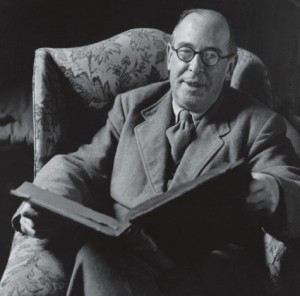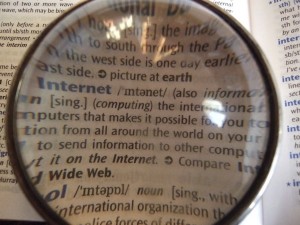If you're talking politics on Weaknesses Of Female Employees Who Are Promoted Quickly (2025)Twitter, in all likelihood you're either preaching to the choir, or letting your arguments fall on deaf, angry ears.
A study from Pew Research Center has yielded some new data about the role politics and political leanings play on Twitter. Overall, it showed that Trump's paranoia about his enemies might hold some water: 55 percent of Twitter users "strongly disapprove" of President Trump, and that contingent produces 80 percent of tweets. They're closing in!
And only a meager 15 percent of Twitter users "strongly approve" of the president which is, well, not a lot.
One of the most interesting findings was how intensely polarized the digital landscape is: 97 percent of Twitter users who tweet about national politics either "strongly disapprove" or "strongly approve" of President Trump.
That passionate population skews (ostensibly) very liberal, too: 72 percent of political tweets come from people who "strongly disapprove" of the president, while 25 percent of the political tweeters "strongly approve" of the tweeter-in-chief. That means if Trump (and his supporters) feel attacked, it's because they're surrounded by vocal ideological opposites.
 Original image has been replaced. Credit: Mashable
Original image has been replaced. Credit: Mashable This dynamic could explain why Twitter is widely known as one of the most combative places on the Internet, a truth that Twitter itself is trying to remedy through efforts to improve "conversational health." If political speech is dominated by only the people who feel "strongly" about our commander-in-chief, that's bound to breed strong takes, and explosive non-debates.
Conversely, the findings also provide statistical support for the idea of Twitter (and social media more generally) as a politicalecho chamber, in particular. About one in five people who don't tweet about national politics said they believe they follow people with the same political views as themselves. However, a higher proportion — 38 percent — of people who do tweet about politics say they follow people with the same political views.
SEE ALSO: Twitter asks researchers to help make site less toxicPew studied the accounts, tweets, and self-reported political predilections of 2,427 U.S. adults between June 2018 and June 2019. It had previously found that only 22 percent of U.S. adults are Twitter users, which was surprising given the dominant role that Twitter plays in U.S. politics.
The recent study further confirmed that apparent outsize influence of Twitter on politics. Pew also found that just 13 percent of the tweets it studied were about national politics. Further, only 10 percent of the users who tweeted about politics were responsible for 97 percent of the content. Put another way: 39 percent of twitter users tweeted about politics at least once. But only 10 percent of that 39 percent is responsible for the vast majority of the political tweets on the platform.
 Original image has been replaced. Credit: Mashable
Original image has been replaced. Credit: Mashable Basically, the study shows that a small amount of people are talking a lot of politics, and those people are extremely polarized. No wonder Twitter's most common epithets include "echo chamber" and "cesspool."
Topics Social Media X/Twitter Donald Trump Politics
(Editor: {typename type="name"/})
 11 Tech Products That Were Supposed to Fail... But Didn't
11 Tech Products That Were Supposed to Fail... But Didn't
 Just Like Christmas … by The Paris Review
Just Like Christmas … by The Paris Review
 Biden trolls Trump on his COVID failures with a fake error page
Biden trolls Trump on his COVID failures with a fake error page
 Wordle today: Here's the answer and hints for June 6
Wordle today: Here's the answer and hints for June 6
 The Year in Tech: 2014 Top Stories
The Year in Tech: 2014 Top Stories
New 'browser syncjacking' cyberattack lets hackers take over your computer via Chrome
 Hackers have discovered a new way to remotely take control of your computer — all through the
...[Details]
Hackers have discovered a new way to remotely take control of your computer — all through the
...[Details]
Happy Birthday, C. S. Lewis by Sadie Stein
 Happy Birthday, C. S. LewisBy Sadie SteinNovember 29, 2012Quote Unquote“Literature adds to re
...[Details]
Happy Birthday, C. S. LewisBy Sadie SteinNovember 29, 2012Quote Unquote“Literature adds to re
...[Details]
Biden trolls Trump on his COVID failures with a fake error page
 Take a quick jaunt over to TrumpCovidPlan.com, and you'll get what, at first, seems like an error me
...[Details]
Take a quick jaunt over to TrumpCovidPlan.com, and you'll get what, at first, seems like an error me
...[Details]
Scandal at the (Old) OED, and Other News by Sadie Stein
 Scandal at the (Old) OED, and Other NewsBy Sadie SteinNovember 27, 2012On the Shelf“An eminent forme
...[Details]
Scandal at the (Old) OED, and Other NewsBy Sadie SteinNovember 27, 2012On the Shelf“An eminent forme
...[Details]
Best external hard drive deal:WD 5TB Elements for $114.99
 SAVE $25: As of Feb. 10, the WD 5TB Elements portable external hard drive is on sale for $114.99 at
...[Details]
SAVE $25: As of Feb. 10, the WD 5TB Elements portable external hard drive is on sale for $114.99 at
...[Details]
Wordle today: Here's the answer and hints for June 7
 Can't get enough of Wordle? Try Mashable's free version now I
...[Details]
Can't get enough of Wordle? Try Mashable's free version now I
...[Details]
To Be or Not to Be? And Other News by Sadie Stein
 To Be or Not to Be? And Other NewsBy Sadie SteinNovember 28, 2012On the ShelfHamlet, as a choose-you
...[Details]
To Be or Not to Be? And Other NewsBy Sadie SteinNovember 28, 2012On the ShelfHamlet, as a choose-you
...[Details]
Facebook Dating finally arrives in Europe
 It's a weird time to be dating right now. Facebook, nonetheless, is undeterred. From today, the soci
...[Details]
It's a weird time to be dating right now. Facebook, nonetheless, is undeterred. From today, the soci
...[Details]
A hedgehog blown up 'like a beach ball' was popped in life
 This gassy hedgehog has had a rough week.He was rescued in Doncaster, England last Monday after a me
...[Details]
This gassy hedgehog has had a rough week.He was rescued in Doncaster, England last Monday after a me
...[Details]
Vision Pro, iOS 17, 15" MacBook Air: Everything you need to know from Apple WWDC 2023
 Well, that was certainly a lotof Apple news to take in.This year's WWDC (Worldwide Developers Confer
...[Details]
Well, that was certainly a lotof Apple news to take in.This year's WWDC (Worldwide Developers Confer
...[Details]
Here's how I feel about all this Stephen Hawking 'news' going around

Anybody Can be Cool … But Awesome Takes Practice by Sadie Stein

接受PR>=1、BR>=1,流量相当,内容相关类链接。